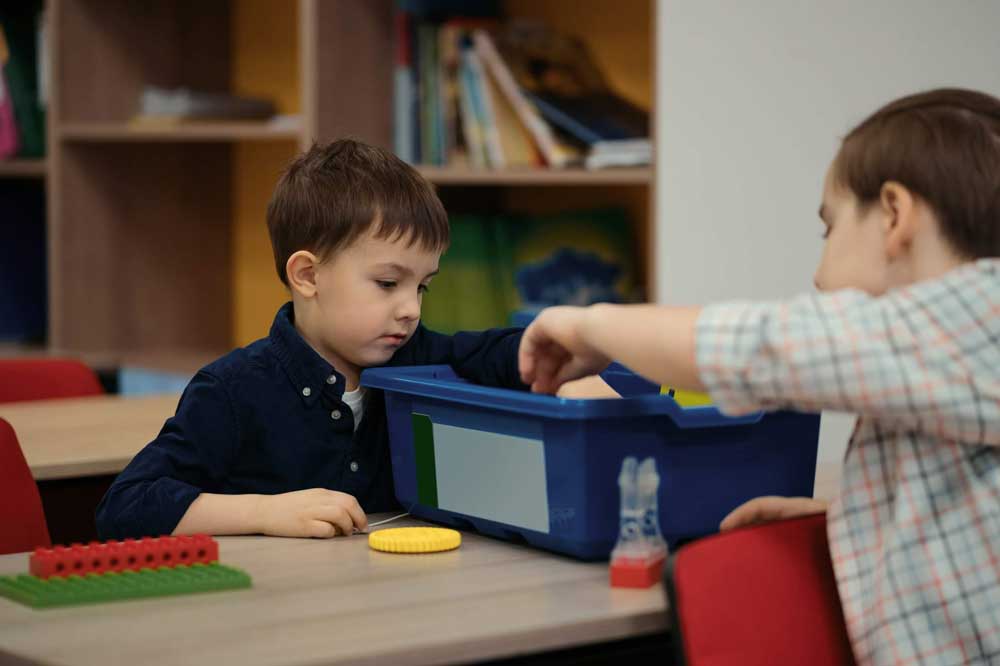Are you looking for ways to help your child develop strong and lasting friendships?
We will explore practical strategies to equip your child with the skills they need to nurture healthy relationships.
By teaching empathy, effective communication, self-confidence, and social skills, as well as promoting inclusivity and acceptance, you can empower your child to build meaningful connections with others.
Additionally, we will discuss how setting boundaries and resolving conflicts play a crucial role in maintaining positive friendships.
Teaching Empathy and Emotional Intelligence
Teaching empathy and emotional intelligence is crucial for equipping your child with the skills to nurture healthy friendships.
Cultivating compassion helps children understand and empathize with others’ experiences, fostering a sense of connection and understanding.
By developing self-awareness, children can learn to recognize their own emotions and understand how they impact others.
Fostering active listening teaches them to pay attention to their friends’ feelings and thoughts, promoting open communication.
Enhancing perspective-taking allows children to see things from different viewpoints, promoting empathy and understanding in their friendships.
Finally, practicing emotional regulation empowers children to manage their own emotions effectively, preventing conflicts and misunderstandings.
By teaching these skills early on, you are providing your child with the tools necessary for building strong and healthy relationships throughout their lives.
Encouraging Effective Communication
Start by helping your child develop strong communication skills. Active listening is an important aspect of effective communication. Teach them to pay attention to others and show genuine interest in what they have to say. Encourage them to ask questions and clarify any misunderstandings. Additionally, teach your child assertive communication by expressing their thoughts and feelings confidently without being aggressive or passive. They should learn to use ‘I’ statements and express themselves clearly and respectfully.
Teach your child the importance of nonverbal cues in communication as well. Help them understand body language, facial expressions, and tone of voice, as these can convey powerful messages.
Conflict resolution is another crucial skill for nurturing healthy friendships. Teach your child problem-solving techniques such as brainstorming solutions, compromising, and finding win-win outcomes. Encourage open dialogue between friends when conflicts arise so they can resolve issues peacefully and maintain strong relationships based on effective communication skills.
Building Self-Confidence and Social Skills
Building self-confidence and social skills is essential for your child’s overall development and ability to form strong relationships. By building resilience, your child will learn to bounce back from setbacks and handle challenges with confidence.
Encouraging them to develop assertiveness will help them express their needs and opinions effectively, empowering them in their interactions with others.
Fostering active listening skills will teach your child the importance of paying attention to others and understanding their perspectives, enhancing their communication abilities.
Cultivating teamwork skills will enable them to work collaboratively with peers, promoting cooperation and empathy.
Lastly, instilling problem-solving abilities will equip your child with the tools needed to navigate conflicts and find solutions, nurturing healthy friendships based on mutual respect and understanding.
Setting Boundaries and Resolving Conflict
To effectively resolve conflicts and establish healthy boundaries, it’s important for you to communicate your needs and expectations clearly.
Active listening is key in conflict resolution, as it allows you to understand the other person’s perspective.
Practice problem-solving skills by brainstorming solutions together and finding compromises that work for both parties. Developing negotiation skills will help you navigate disagreements and find win-win outcomes.
Remember to manage your anger in a constructive way, such as taking deep breaths or counting to ten before responding.
When conflicts arise, apologize sincerely if you have made a mistake or hurt someone unintentionally.
By setting boundaries and resolving conflicts in a respectful manner, you can foster healthier friendships that are built on trust and understanding.
Promoting Inclusivity and Acceptance
When conflicts arise, it’s important to actively listen and understand the perspective of others in order to promote inclusivity and acceptance.
Embracing diversity is key in creating a culture of belonging. Encourage your child to appreciate different backgrounds, cultures, and beliefs.
By fostering understanding, they can learn to value the unique qualities that each individual brings to a friendship. Promoting tolerance and respect is essential, teaching them that everyone deserves kindness regardless of their differences.
Empathy plays a crucial role in building healthy friendships – help your child understand how others may feel by encouraging them to put themselves in someone else’s shoes.
By emphasizing the importance of empathy, you are equipping your child with the tools needed for nurturing strong and inclusive friendships throughout their lives.
Frequently Asked Questions
How can I teach my child to handle rejection and disappointment in friendships?
Teach your child coping skills to handle rejection and disappointment in friendships. Encourage open communication, promote empathy towards others, and foster a healthy self-esteem. Building resilience will empower them to navigate challenges and maintain healthy relationships.
What strategies can I use to help my child recognise and regulate their emotions in social situations?
To help your child recognise and regulate their emotions in social situations, encourage self-awareness by asking how they feel and why. Teach them coping strategies like deep breathing or taking a break if they’re overwhelmed. Foster emotional intelligence through open communication and empathy. Develop social skills through role-playing and practicing problem-solving together.
How can I encourage my child to be assertive and express their needs and wants in friendships?
To encourage your child to be assertive and express their needs and wants in friendships, focus on building their confidence and teaching effective communication. Teach them the importance of setting boundaries, active listening, and conflict resolution skills.
What should I do if my child is being excluded or bullied by their friends?
If your child is being excluded or bullied by their friends, focus on building resilience and developing self-confidence. Encourage them to seek support from trusted adults or counselors. Explore new interests to meet new people and strengthen communication skills.
How can I teach my child to be respectful and accepting of others’ differences and diversity?
Promote empathy by teaching tolerance, cultivating acceptance, and embracing diversity. Foster inclusivity by encouraging your child to appreciate others’ differences. By instilling these values, you equip them with skills to respect and accept others.




